
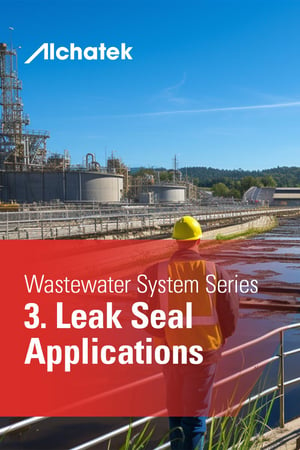 Municipal managers and administrators may be interested in the ways in which polyurethane grout can be strategically applied to different structures within the wastewater system—manholes, pipes, and lift stations—to ensure efficient, cost-effective operations.
Municipal managers and administrators may be interested in the ways in which polyurethane grout can be strategically applied to different structures within the wastewater system—manholes, pipes, and lift stations—to ensure efficient, cost-effective operations.
Precast Joints in Manholes
Alchatek’s Spetec PUR GT380 polyurethane grout offers a straightforward solution for sealing precast manhole joints, curing into a gel or foam to ensure durable, long-term sealing. Its single-component, low-viscosity nature allows for easy penetration into joints without the need for mixing, streamlining the installation process to just four steps: drilling holes, flushing the holes, installing the injection port, and injecting the resin. The resilience of Spetec PUR GT380 in harsh sewer conditions assures confidence in the workmanship, while effectively preventing financial losses for clients due to leaking manhole joints.
Pipe Penetrations
When sealing pipe penetrations, whether for manholes, electrical conduits, or gas lines, it is essential to establish a durable, watertight seal. To achieve this, Spetec Oakum is soaked a leak seal grout such as Spetec PUR GT380, and then packed into the annular space around the pipe, creating a tight gasket to halt immediate leaks. Following the gasket formation, further reinforcement is provided by injecting leak seal grout behind the gasket using an injection needle, ensuring a robust and enduring watertight barrier.
Lift Stations
Lift stations are critical for transporting wastewater from lower to higher elevations. Leaks in these structures can cause malfunctions and lead to unsanitary conditions. Applying polyurethane grout in lift station leaks prevents water from entering or exiting the structure in unintended ways. The quick curing time of the grout minimizes downtime, a crucial factor in maintaining the continuous operation of these essential facilities.
Key Takeaways
- Polyurethane grout provides robust, flexible seals for manholes, contributing to reduced groundwater infiltration.
- It offers a long-lasting solution for pipe penetration leaks, enhancing structural stability and service life.
- In lift stations, polyurethane grout ensures proper functioning by sealing against leaks.




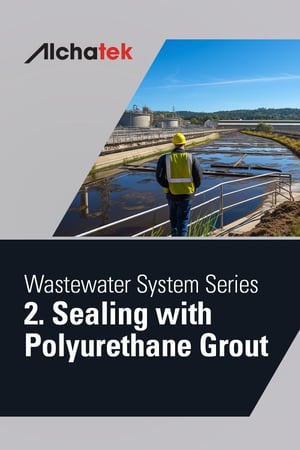 In the quest to maintain robust wastewater infrastructure, polyurethane grout emerges as a material that exhibits superior sealing capabilities, flexibility, and longevity. Its unique chemical structure allows it to expand upon contact with water, creating an effective and durable seal that traditional materials cannot match.
In the quest to maintain robust wastewater infrastructure, polyurethane grout emerges as a material that exhibits superior sealing capabilities, flexibility, and longevity. Its unique chemical structure allows it to expand upon contact with water, creating an effective and durable seal that traditional materials cannot match.
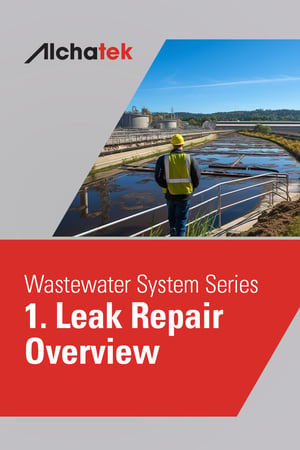 Wastewater management is an essential component of municipal operations, pivotal for public health and environmental protection. The intricate network of sewers, manholes, and lift stations must always function optimally. Ensuring the integrity of this infrastructure is not just about maintenance; it’s about safeguarding the community's well-being.
Wastewater management is an essential component of municipal operations, pivotal for public health and environmental protection. The intricate network of sewers, manholes, and lift stations must always function optimally. Ensuring the integrity of this infrastructure is not just about maintenance; it’s about safeguarding the community's well-being.
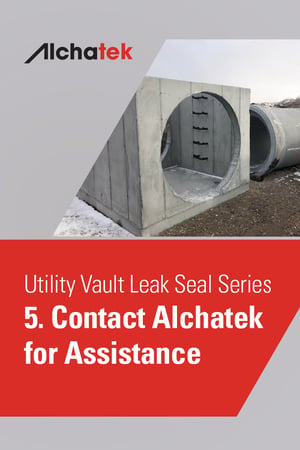 The importance of properly sealing leaks in utility vaults cannot be overstated. Utilizing the right materials and following best practices are fundamental. However, the process doesn't stop there; selecting the right contractor is a crucial decision that directly impacts the quality and longevity of your repair.
The importance of properly sealing leaks in utility vaults cannot be overstated. Utilizing the right materials and following best practices are fundamental. However, the process doesn't stop there; selecting the right contractor is a crucial decision that directly impacts the quality and longevity of your repair.
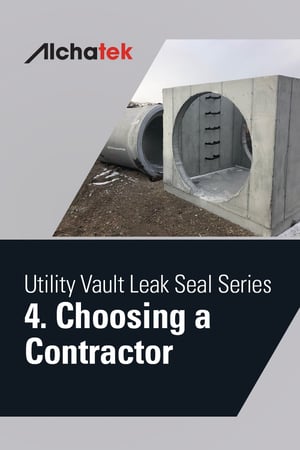 The quality of workmanship directly impacts the effectiveness and longevity of the repair, making it imperative to choose a contractor wisely.
The quality of workmanship directly impacts the effectiveness and longevity of the repair, making it imperative to choose a contractor wisely.
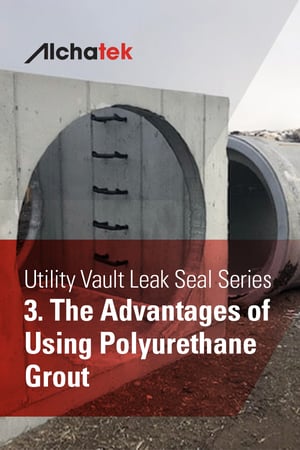 Leak sealing in utility vaults is a critical aspect of maintaining infrastructure integrity. Various methods and materials are available for this purpose, but they are not all equal in terms of performance.
Leak sealing in utility vaults is a critical aspect of maintaining infrastructure integrity. Various methods and materials are available for this purpose, but they are not all equal in terms of performance.
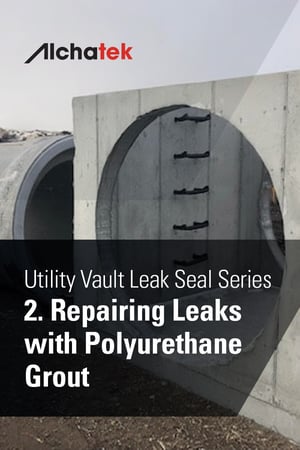 Regarding water infiltration in utility vaults, precast joints often serve as weak links. Conventional methods like cementitious grouting offer temporary solutions but often fail to withstand structural movements or shifting over time, resulting in a reoccurrence of leaks.
Regarding water infiltration in utility vaults, precast joints often serve as weak links. Conventional methods like cementitious grouting offer temporary solutions but often fail to withstand structural movements or shifting over time, resulting in a reoccurrence of leaks.
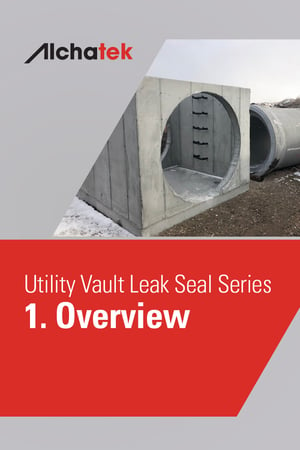 Utility vaults are critical components of modern infrastructure, providing secure containment for electrical, telecommunications, or other equipment. They are designed to be robust and durable. However, one common but often overlooked issue is the occurrence of leaks, most commonly found in precast joints and pipe penetrations.
Utility vaults are critical components of modern infrastructure, providing secure containment for electrical, telecommunications, or other equipment. They are designed to be robust and durable. However, one common but often overlooked issue is the occurrence of leaks, most commonly found in precast joints and pipe penetrations.
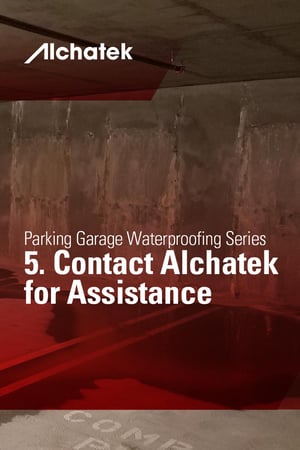 If you own or manage a below-grade parking garage, contact Alchatek for more information about protecting your property from water damage. Our team can provide insights and recommendations tailored to your facility's unique waterproofing needs.
If you own or manage a below-grade parking garage, contact Alchatek for more information about protecting your property from water damage. Our team can provide insights and recommendations tailored to your facility's unique waterproofing needs.
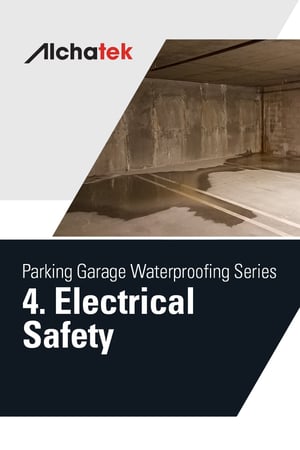 Below-grade parking garages are susceptible to moisture due to their subterranean nature. This moisture can pose significant risks to the electrical systems within these structures. Water leakage around electrical conduits can lead to short circuits, electrical fires, and even electrocution hazards. These risks not only endanger lives but can also result in substantial legal liabilities for garage managers.
Below-grade parking garages are susceptible to moisture due to their subterranean nature. This moisture can pose significant risks to the electrical systems within these structures. Water leakage around electrical conduits can lead to short circuits, electrical fires, and even electrocution hazards. These risks not only endanger lives but can also result in substantial legal liabilities for garage managers.